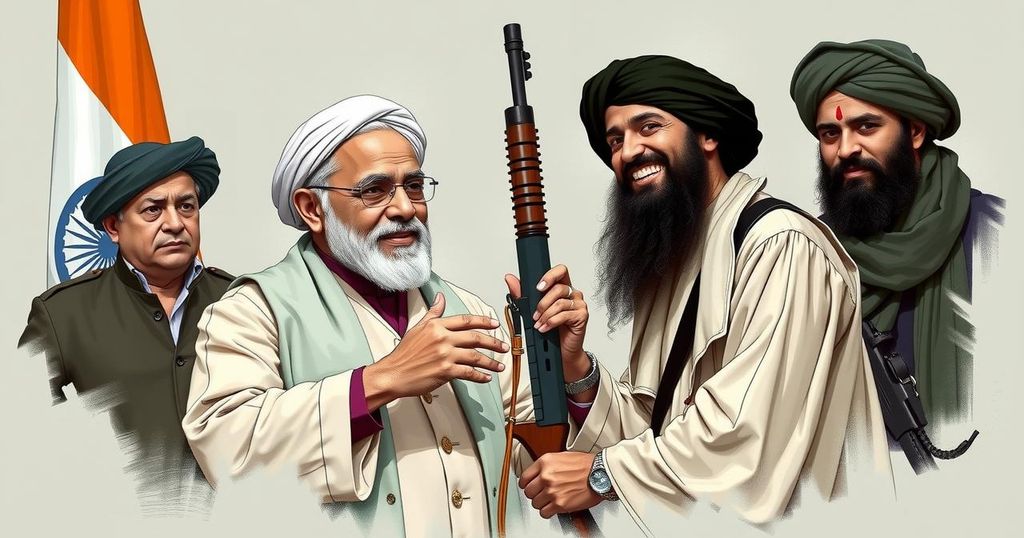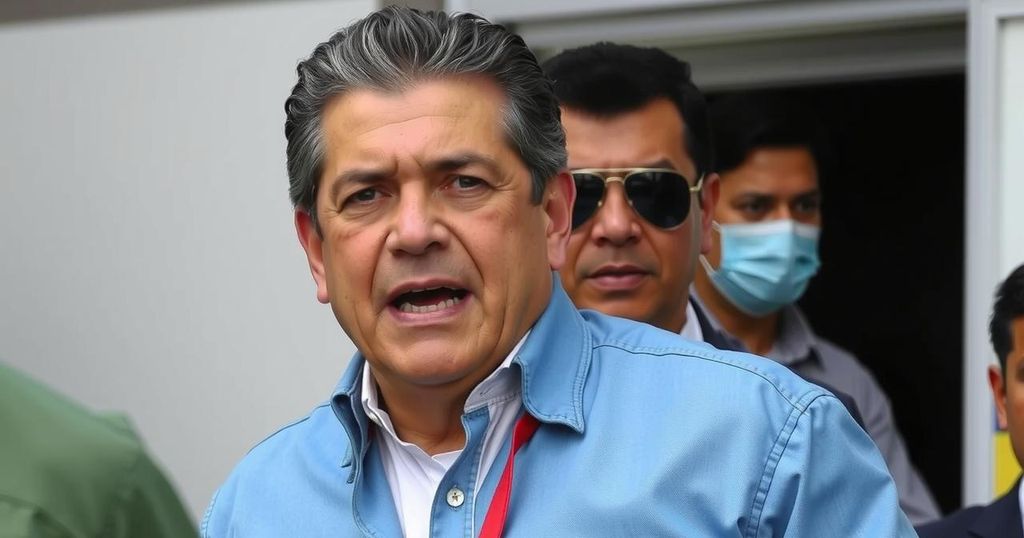India’s Strategic Shift: Engaging with the Taliban in Afghanistan
India is re-engaging with the Taliban after years of political turmoil and strategic shifts in Afghanistan, signaling a need to reclaim influence lost since Kabul’s fall. Recent diplomatic meetings focus on trade and connectivity, particularly through Iran’s Chabahar port. While this outreach legitimizes the Taliban, it also raises questions about trust given their violent history. Experts suggest engagement may pressure the Taliban towards important reforms, notably concerning women’s rights.
India’s diplomatic engagement with the Taliban marks a significant shift in its approach to the Afghan political landscape, occurring more than three years after the Taliban’s seizure of power in Kabul. This recent outreach stems from India’s need to reclaim its influence in the region following a strategic setback that allowed Pakistan and China to expand their roles. Notably, Indian diplomat Vikram Misri’s meeting with Taliban foreign minister Amir Khan Muttaqi in Dubai indicates a pivotal moment of communication, where the Taliban expressed a desire to strengthen ties with India, recognizing its influence in the region.
The discussions reportedly centered on enhancing trade and utilizing Iran’s Chabahar port, a project India is developing to circumvent Pakistan-controlled shipping routes. Analysts highlight that India’s move grants de facto legitimacy to the Taliban, a departure from its historical reluctance to engage with the regime. As noted by Michael Kugelman of the Wilson Center, “The fact that this treatment is coming from India – a nation that never previously had friendly relations with the Taliban – makes this all the more significant.”
India’s previous investments in Afghanistan, which exceeded $3 billion in infrastructure, education, and humanitarian support, underpin its enduring ties to the region, despite the current political climate. Foreign Minister S. Jaishankar remarked on the historical bonds between the two nations, while experts point to the necessity of creating a middle ground amid rising tensions between the Taliban and Pakistan. The latter’s ongoing claims of threats from the Afghan soil only exacerbate regional insecurity.
Furthermore, India is strategically positioning itself to facilitate greater access to Central Asia through Afghanistan, leveraging Iran’s Chabahar port. Kugelman explains that Indian engagement with the Taliban could foster mutual benefits, allowing India’s projects to enhance Afghanistan’s trade and connectivity. However, there are inherent risks given the Taliban’s violent history and ongoing affiliations with extremist factions. The situation prompts critical questions regarding the stability and trustworthiness of the Taliban as a negotiating partner.
Some experts, including former Indian ambassador Jayant Prasad, see engagement as crucial for avoiding a repeat of past diplomatic isolation which can harm the Afghan populace. He advocates for pressure within the international community to encourage the Taliban towards reforms, particularly regarding women’s rights. The insight offers a complex yet pragmatic view on maintaining diplomatic ties despite the Taliban’s controversial policies. In conclusion, India’s outreach to the Taliban is fundamentally driven by geopolitical interests, regional security concerns, and historical ties, as it attempts to navigate the complexities of engaging with the Taliban while safeguarding its national interests.
India’s recent outreach to the Taliban emerges within the broader context of its historical involvement in Afghanistan and the shifting geopolitical dynamics in the region post-2021. The fall of Kabul to the Taliban represented a crucial blow to India’s strategic objectives after two decades of investment aimed at fostering a democratic Afghanistan. With Pakistan and China poised to expand their influence in the vacated space, India is compelled to adapt its diplomatic strategy to preserve its interests and engage meaningfully with the new regime.
In summary, India’s renewed engagement with the Taliban signals a strategic reevaluation aimed at preserving its geopolitical foothold in Afghanistan while addressing significant regional security concerns. The outreach, characterized by diplomatic discussions and economic cooperation, reflects India’s ongoing commitment to its historical ties with Afghanistan, even as it approaches its relationship with caution and pragmatism. Ultimately, navigating this complex dynamic will require India to balance its interests with the realities of the Taliban’s governance.
Original Source: www.bbc.co.uk








Post Comment